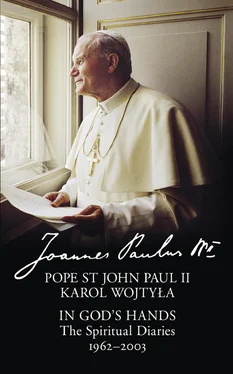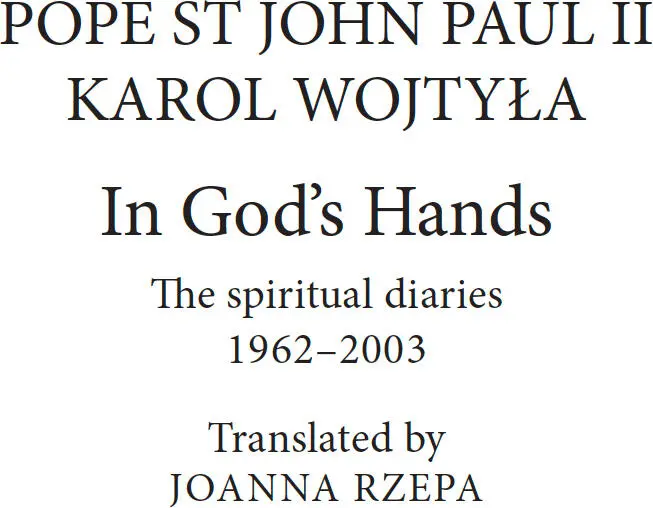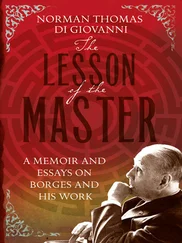
William Collins
An imprint of HarperCollins Publishers
1 London Bridge Street
London SE1 9GF
WilliamCollinsBooks.com
This eBook edition published by William Collins in 2017
Copyright © Centrum Jana Pawła II ‘Nie lękajcie się’ 2017
English translation © Dr Joanna Rzepa 2017
Znak Publishing House on behalf of the author hereby asserts the author’s moral right to be identifed as the author of this work
Cover photo by Gianni Giansanti, Corbis
A catalogue copy for this book is available from the British Library.
All rights reserved under International and Pan-American Copyright Conventions. By payment of the required fees, you have been granted the non-exclusive, non-transferable right to access and read the text of this eBook on-screen. No part of this text may be reproduced, transmitted, downloaded, decompiled, reverse engineered, or stored in or introduced into any information storage and retrieval system, in any form or by any means, whether electronic or mechanical, now known or hereinafter invented, without the express written permission of HarperCollins Publishers.
Source ISBN: 9780008101053
eBook Edition © February 2017 ISBN: 9780008101060
Version: 2018-02-08
Contents
Cover
Title Page
Copyright
Introduction by the Archbishop of Cardiff, George Stack
Introduction to the Polish Edition
Preface by the Metropolitan Archbishop of Kraków, Stanisław Cardinal Dziwisz
The Secret of Father Karol Wojtyła – Pope John Paul II’s Spiritual Notes
The Retreats
1962
1962
[31 October – 4 November] 1962
6–7 July 196? [probably 1963]
19–23 [August] 1963
[5–8] March 1964
31 August – 3 September 1964
17–20 [August] 1965
[19]64 (65?)
31 October – 1 November 1966
19–21 December 1966
29 February 1968
11–14 September 1968
9–13 August 1969
4–7 November 1970
1–5 September 1971
5–6 July 1973
9–12 August 1973
1974
[3–7 September] 1974, The Holy Year
4–8 July 1975
21–26 September 1976
5–9 July 1977
26–29 June 1978
[October 1978]
4–10 March 1979
24 February – 1 March [1980]
8–14 March 1981
28 February – 6 March 1982
20–26 February 1983
11–17 March 1984
24 February – 2 March 1985
16–22 February 1986
8–14 March 1987
21–27 February 1988
12–18 February 1989
4–10 March 1990
17–23 February 1991
8–14 March 1992
28 February – 6 March 1993
20–[26] February 1994
5–11 March 1995
25 February – [2] March 1996
16–22 February 1997
1–7 March 1998
21–27 February 1999
12–18 March 2000
4–10 March 2001
17–23 February 2002
9–15 March 2003
Footnotes
About the Author
About the Publisher
Not since the publication of Journal of a Soul , the spiritual autobiography of Pope John XXIII, have we had such privileged access into the spirituality of a pope. This is what we have been given with the publication in English of the spiritual diaries of Pope John Paul II. In God’s Hands has already been published in his native Poland and in Italy where it has been a phenomenal success. English-speaking readers will now benefit from the extraordinary insights of this spiritual journal.
The two notebooks from which it is drawn are not chronological. However, the first covers the years 1962–1984, whilst the second includes notes at retreats given to the Pope and Roman curia between the years 1985 and 2003. The electrifying element in this publication are the pages of handwritten reflections, explanations and prayers bearing characteristic insights of Pope John Paul II. There is an Ignatian structure to much of his response to the various presentations, homilies, feast days, Liturgy of the Hours and Mass celebrated during the retreats. This structure enables an amazing personal response to take place, with the unique ability to link such thoughts and texts to his own inner life as well as to the public ministry he was called to exercise in the Church and in the world.
In God’s Hands is unusual in that the immediacy of the Pope’s response is given, not just through his handwriting, but in the deepest thoughts elicited by the presentations of the retreat givers. This is not a sedate, refined or sanitised journal of devotion. It allows the reader to follow the different paths which lay before one who was sincerely discerning the will and plan of God unfolding in his own life.
In all this, the leitmotif of obedience to the will of God is obvious not least in his episcopal motto ‘ Totus Tuus ’. In his devotion to Mary, Pope John Paul II saw someone who was attentive to the will of God, the woman who listened, the woman who believed that God’s plan could be fulfilled through her obedience. By the same token, that obedience, which is based on prayerful listening and the response which follows, was the foundation of the dynamism he was able to bring to the papal ministry.
‘Prayer is the language of our hope’ wrote Cardinal Ratzinger, quoted in one of the spiritual conferences eliciting a very full entry in the retreat notes. Herein lies another path to the heart of the love of God when ‘Heart speaks to heart’ (Cardinal Newman) but always in the silence of the heart. Of course intercession is part of the prayer of Pope John Paul II as he prays for the needs of the world and the Church and all people. But it is in his prayer of adoration and contemplation that he comes to know himself as he is known. This is the path of the mystic, recognising that heaven is ‘… a space that Christ made for man in God’ (Ratzinger). This is also what allowed the Pope to spend time alone with God in prayer ‘… at the morning watch and even in the night’ ( De profundis ). So often, such waiting on God is regarded as a waste of time. The act of faith that gives the time and space to such contemplation says that no time is wasted in which God is served. The service of God is the sanctification of time. No time is sanctified more than when it is a pure gift, given in faith with no other expectation than to ‘be’ in the presence of God. This is the prayer which permeates these diaries of Karol Wojtyła.
There is another language of prayer with which he was intimately familiar: the language of suffering. From the devastating attempt on his life in St Peter’s Square on 13 May 1981, and the burden of ill health he subsequently bore, suffering was part of the reality of who he was. Old age and increasing infirmity limited his physical resources in ways which were surely both Calvary and cross to this once energetic man and skilled communicator. Even when he could no longer speak, he did not hide himself away from those who came to see and hear him. He had preached often on the meaning of the suffering of Jesus on Calvary and the significance of the cross in the suffering that each person has to bear. Now he was able to personify that teaching in his own weakness and vulnerability. The final pages of his diaries have lost the intensity and vigour of all that went before. It is significant that the last two entries touch closely the heart of his life and ministry: Mary, his patron and hope, standing at the foot of the cross followed by a meditation entitled, ‘Jonah, or the fear of preaching the love of God’.
Читать дальше














